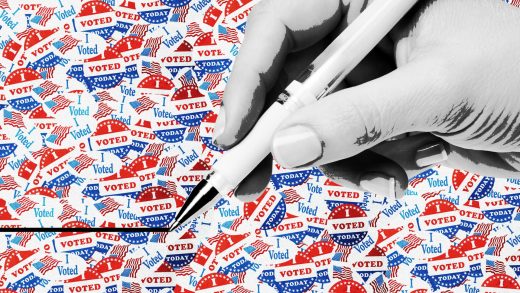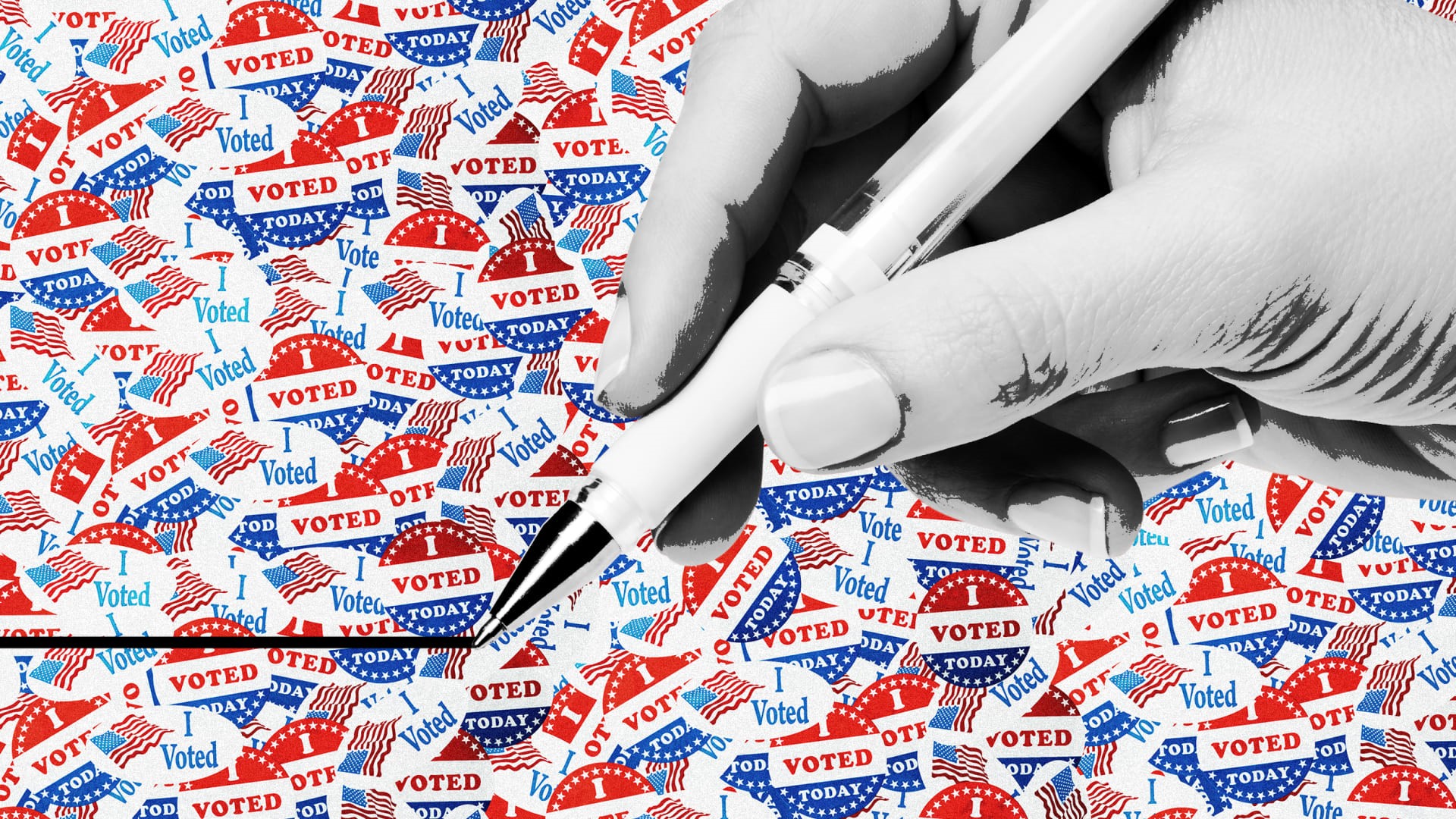Voters are writing in memes as their presidential picks—and bragging about it on TikTok
Voters are writing in memes as their presidential picks—and bragging about it on TikTok
Whether these meme write-ins were real or edited, they achieved immediate virality.
Some rage-baiting TikTok and X users are choosing not to vote for Kamala Harris or Donald Trump. Instead, they’re writing in their favorite meme.
At the bottom of the presidential ballot, some states let voters to write in their preferred candidate. Some people have used that allowance to write-in, say, their favorite Twitch streamer, or even references to memes—and post about their ballot box prank for audiences online. And in a weird full-circle moment, write-in ballot memes are now dominating the social media algorithms.
Are people actually writing in memes for president?
TikTok user @juicytube recently posted a photo to the platform showing the name “Tanka Jahari” listed as a write-in vote on her presidential ticket. “Tanka Jahari,” a character on the show Impractical Jokers, recently went viral for a bit where he insists he didn’t plan on eating an entire pizza pie. (The full line: “I’m Tanka Jahari but I’d never order a whole pizza for myself.”) @juicytube’s video was ultimately been taken down, but not before amassing over 3.3 million views and over 500,000 likes. (Other accounts still have snaps of it up.)
On X, Braden Boyko posted that he had written in the Twitch streamer Dream for his presidential pick. The post now has over three million views, and has incensed many commenters. “You just voted for Trump, btw,” one person wrote. “The sad things you do for another click of engagement,” wrote another.
Now, there’s a question of authenticity plaguing these posts. How many are actually writing in meme candidates, and how many are just editing their ballots to appear so? There is a clear threat of meme write-ins: In 2016, Orange County, Florida, recorded 101 appearances of the internet famous Harambe the Gorilla on ballots, according to Spectrum News. While that may be alarming, it’s still a far cry from the unfounded claims that Harambe had garnered 20,000 votes that year.
How algorithms spread political disengagement
Whether these meme write-ins were real or edited, they achieved immediate virality. That’s thanks to the social media algorithms, which promote content based on engagement metrics. Those commenters shaming the users for wasting their vote could be positioning the posts higher in another’s feed.
This algorithmic content promotion values sensationalism over pragmatism. It’s the most aggressive clips from Jubilee debates, or the most outlandish conspiracy theories about natural disasters, that gain attention on TikTok. Some creators have even started to cash in on this algorithmic promise, with TikToker Bryce Hall promoting Trumpisms to revive his influence.
And that’s the problem with write-in ballot memes: Even if they’re not real, they’ll be seen by thousands. That could spur real political disengagement.
ABOUT THE AUTHOR
(4)



